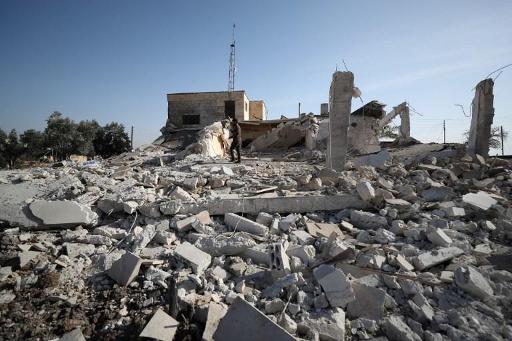The European Commission is planning to allocate humanitarian aid to north-east Syria which is controlled by a Kurdish-led Autonomous Administration.
Out of its humanitarian aid contribution to Syria, €130 Million in 2021, the Commission confirmed on Wednesday that it intends to allocate some 20 % to the region, also integrating COVID-19 response. In addition, €1.5 million is planned to be allocated to WHO, to be used only in government-controlled areas.
The humanitarian situation in north-east Syria has been precarious since October 2019 when Turkey and its proxy forces invaded the region. Turkey claimed that the Autonomous Administration there is a terrorist organisation and threatens its security.
In fact, the Kurdish administration has established a functioning local self-government in north- east Syria, called Rojava, and fought successfully against the Islamic State (IS). According to Kurdish sources, international aid agencies are unable to work with the Autonomous Administration since it lacks any form of recognition.
Since a decision in January 2020 by the UN Security Council, aid can only be delivered through border crossings in Turkey. Previous crossings on Syria’s borders with Iraq and Jordan have been closed. An EU diplomat confirmed that the border crossing Al Yaroubiya at Syria’s border with Iraq is still closed. Cross-border transports without the permission of the Assad regime are not allowed.
A source in the Commission told The Brussels Times that all “EU humanitarian funding is based on needs and in line with the humanitarian principles of humanity, neutrality, impartiality and independence, as enshrined in EU and international law”. The aid is delivered in partnership with UN agencies, international organisations and civil society.
The Commission declined to clarify when and how the planned humanitarian aid is supposed to reach north-east Syria (NES) but admitted that WHO and other UN agencies have been facing challenges to send medical and COVID-19 supplies to NES from Damascus.
The health system in NES was heavily impacted by the closure of the Al Yaroubiya border crossing, especially since the logistical capacity of International Non-Governmental Organisations is limited and could not compensate the WHO supply chain.
“The UN aid, even aid intended for NES/Rojava, arrives in Syria via the Damascus government,” Abdulkarim Omar, Co-Minister of the Foreign Relations Department of the Autonomous Administration, said in a recent interview for Middle East Diplomatic.
“The regime decides what will be sent to our 5 million population. In fact, we do not receive it. This includes the aid intended to fight COVID and provide vaccines.”
Another urgent issue is the plight of the IS-prisoners and their families in north-east Syria. According to the minister, around 12,000 IS terrorists are held in its prisons. In addition, around 4,000 women and 8,000 children belonging to their families are living in two camps in the region.
The repatriation of EU citizens from the camps is a national competency and there is no common EU position. So far, only a small number of children and women have been allowed to return to Belgium, Denmark, France, Finland, Germany, Norway, UK, Ukraine, and other European countries. A bigger number of children and women have been repatriated to non-European countries.
The Commission added that it continues to support member states to share best practices on repatriation of their nationals and will also increase support to the training of practitioners, and to knowledge and information sharing in this area, taking into account the specific needs and rights of children of foreign terrorist fighters.
Update: Aid NGO The New Humanitarian reported on Wednesday (26 May) that the continuation of deliveries of UN aid to rebel-held Idlib in north-west Syria is threatened by the imminent closure of the only remaining cross-border crossing (Bal al-Hawa) at Syria’s border with Turkey. By UN calculations, most of the 4.2 million people living there depend on outside assistance.
M. Apelblat
The Brussels Times

